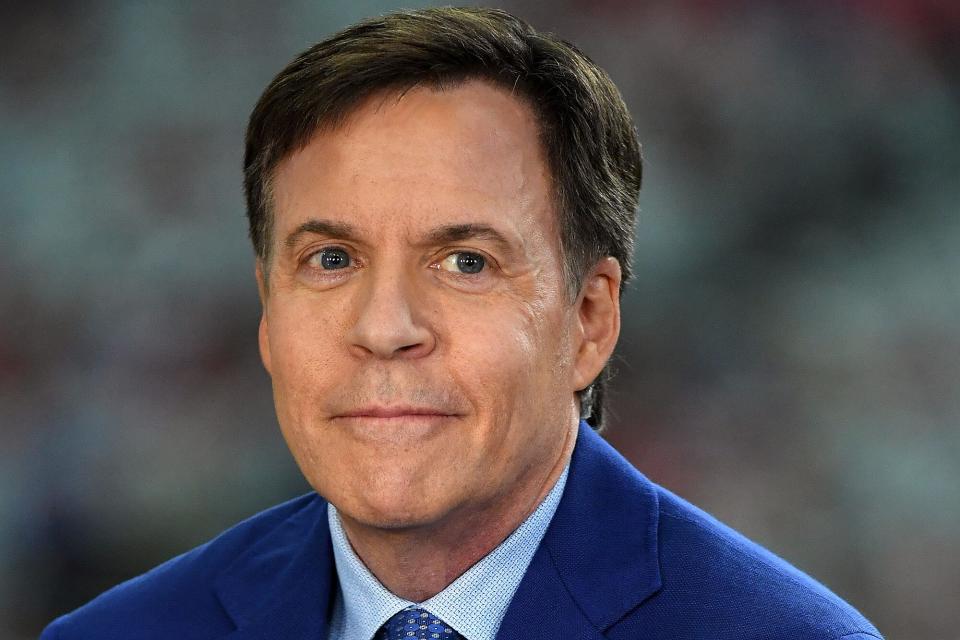Bob Costas on the 'Ridiculous' Theories That Surfaced After He Got Pink Eye at the 2014 Olympics

Ethan Miller/Getty
One of the most unforgettable moments from the 2014 Sochi Olympics happened far from the slopes, was instead behind the NBC anchor desk as Bob Costas dealt with dueling pink eyes.
In this week's issue of PEOPLE, the longtime sportscaster, 69, talks about the time he suffered from viral conjunctivitis while hosting the Winter Olympics — and the "ridiculous" theories that followed.
"It just started out in one eye," Costas recalls. "They said, 'Oh, it'll be gone in three days.' But then it jumped to the other eye and they knew it was full blown viral conjunctivitis and that it would be with me for two or three weeks, which happens to be the exact amount of time that an Olympics takes."
"I made a few quick, self-deprecating remarks, he adds. "You had to acknowledge it. You couldn't hide it. I tried to wear glasses to cover it, but that wasn't terribly effective. So all I could do was quickly acknowledge it, come up with a line or two that maybe made people laugh or smile, and then move on."

Courtesy NBC
However, things quickly took a turn when Costas was unable to "go for a minute on camera without my eyes tearing up."
RELATED: Bob Costas Shares His Favorite Moment from Covering 12 Olympic Games: There 'Was an Audible Gasp'
"And after that, I was in a darkened room for three or four days with these various compresses over my eyes and things that are supposed to make it a little bit better," he says. "I was wandering around. They tell me the Black Sea was out the window, but I couldn't really see it."
RELATED VIDEO: Gymnast MyKayla Skinner on the Pressures of Being an Olympic Athlete: 'You Can't Be Perfect'
As he was recovering, Costas — whose new HBO sports show Back on the Record with Bob Costas premieres Friday — remembers the wild theories and memes that began to sweep the internet.
"There were also ridiculous and wholly untrue theories as to how I got it," he says. "That's the way it is. So this was something that was not only obvious, you couldn't disguise it, but it was also night after night on the most watched thing in all of television. The Super Bowl gets a bigger audience on a given night, but for a concentrated period of three weeks, nothing gets the cumulative audience of an Olympics."
"It happened during the internet era," he adds. "So I get it. It wasn't my fault. I did the best I could. I was good with most of the reaction to it. Some of it was funny. So it was just good natured and supportive and appreciative. And whatever else was beyond that, I can't do anything about what motivates people to have stupid notions!"

 Yahoo Movies
Yahoo Movies 